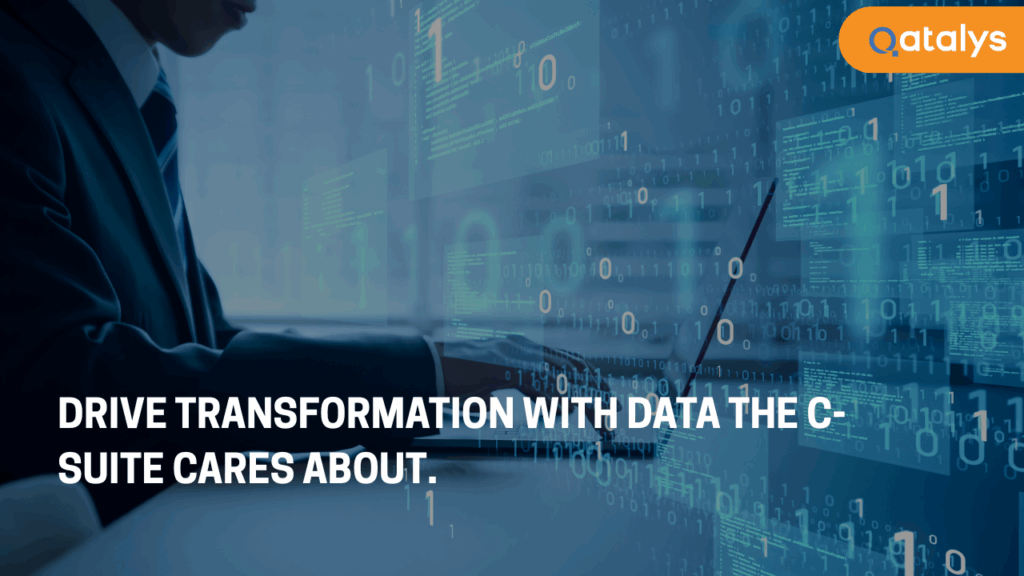Generative AI is no longer a buzzword – it’s a competitive edge. From content creation and customer service to code generation and workflow automation, GenAI is rapidly becoming embedded across industries and functions.
Yet for most organizations, the challenge isn’t awareness – it’s execution.
How do you move from promising pilot projects to scalable, secure, and sustainable AI adoption? How do you balance innovation with governance, and speed with structure?
That’s where Global Capability Centers (GCCs) come in. Already central to engineering, cloud, and digital transformation, GCCs are now being tasked with owning enterprise AI strategy through dedicated Centers of Excellence (CoEs) – with a special focus on Generative AI.
In this blog, we’ll explore:
- Why GCCs are uniquely suited to drive GenAI success
- What a GenAI CoE actually looks like
- Who you need on the team
- How to build it in phases – and why GCC-as-a-Service might be your fastest path forward
Let’s get into it.
Why GCCs Are Ideal for Building AI Centers of Excellence
Global Capability Centers (GCCs) have long been the engine rooms of enterprise tech – handling everything from product engineering and DevOps to data analytics and cloud operations. Now, as enterprises shift toward AI-first operations, GCCs are emerging as the natural home for GenAI Centers of Excellence (CoEs).
Here’s why:
Access to Specialized Talent
Locations like India, Eastern Europe, and Southeast Asia offer a deep, rapidly maturing talent pool in:
- AI/ML engineering
- MLOps and data science
- LLM fine-tuning and prompt engineering
- Model security and AI compliance
This makes it possible to assemble cross-functional, GenAI-literate teams quickly and cost-effectively.
Centralized Control, Global Scalability
Unlike vendor setups or fragmented in-house initiatives, a GCC provides:
- Full IP ownership
- Enterprise-aligned data governance
- Centralized policy, experimentation, and rollout
- Easier integration into existing product, cloud, and DevSecOps pipelines
Cross-Functional Collaboration Made Easier
AI doesn’t live in a vacuum – it touches product, data, design, engineering, and compliance. GCCs are already structured to bring together cross-functional teams in agile pods, making it easier to operationalize GenAI use cases across domains.
Faster Experimentation, Cleaner Governance
Because GCCs operate as controlled environments with direct leadership oversight, they’re ideal for:
- Piloting GenAI use cases safely
- Running internal testbeds
- Aligning AI workflows to enterprise risk, ethics, and security guidelines
In short, GCCs offer the ideal balance of agility, scale, and control – making them the perfect launchpad for building a GenAI Center of Excellence.
Core Capabilities of a GenAI CoE within a GCC
A successful GenAI Center of Excellence isn’t just a lab for experimentation – it’s a repeatable, scalable engine for delivering real AI value across the enterprise.
Inside a well-structured GCC, a GenAI CoE typically focuses on five core capabilities:
1. Prompt Engineering & Model Optimization
- Designing, testing, and refining prompts for different models and use cases
- Creating reusable prompt libraries and design patterns
- Fine-tuning open-source or proprietary LLMs for domain-specific tasks
2. AI/ML Pipeline Architecture
- Building end-to-end pipelines for model development, testing, deployment, and monitoring
- Managing data flows, embeddings, vector stores, and feedback loops
- Supporting hybrid architectures: closed models (e.g., OpenAI) + open-source (e.g., LLaMA, Falcon)
3. Use Case Factory
- Running structured discovery workshops with business teams
- Scoring and prioritizing AI opportunities by feasibility, ROI, and readiness
- Prototyping and validating MVPs before wider deployment
4. Governance, Ethics, and Compliance
- Implementing responsible AI frameworks (transparency, bias mitigation, auditability)
- Defining policies for model usage, output handling, and hallucination risk
- Ensuring regional regulatory compliance (GDPR, HIPAA, etc.)
5. Performance Tracking and Value Realization
- Building dashboards to monitor usage, success metrics, and drift
- Capturing qualitative and quantitative value delivered by each use case
- Feeding learnings back into CoE workflows and enterprise AI strategy
These capabilities help organizations move beyond scattered pilots and toward a systematized approach to GenAI – from idea to production, with governance and ROI built in.
Team Structure: Who Belongs in a GCC-Based GenAI CoE?
Generative AI is a deeply cross-functional domain. A high-performing GenAI Center of Excellence inside a GCC needs more than just data scientists – it requires a blend of technical, strategic, and ethical expertise, aligned to real-world business goals.
Here’s a breakdown of the essential roles:
AI/ML Engineers
- Build and fine-tune models
- Design LLM workflows (including RAG, transformers, embeddings)
- Develop APIs and backend services to serve AI models at scale
Prompt Engineers
- Create, test, and optimize prompts for text, code, image, and domain-specific outputs
- Design prompt chains and templates across use cases
- Work closely with UX, product, and legal to ensure safe and useful outputs
Data Scientists & MLOps Specialists
- Analyze training data, validate outputs, and run performance benchmarks
- Maintain model versioning, experiment tracking, and deployment automation
- Monitor for drift, bias, and regulatory alignment
Product Managers + AI UX Designers
- Prioritize AI use cases aligned to user and business needs
- Design seamless human-AI interaction flows
- Define KPIs, user testing plans, and iteration cycles
Compliance & Ethics Officers
- Ensure outputs align with privacy and regulatory requirements
- Implement guardrails to mitigate hallucinations, bias, and overreach
- Define model approval, rollback, and audit processes
DevOps & Cloud Infrastructure Leads
- Provision GPU/cloud environments for training and serving models
- Handle security, access management, and network configurations
- Ensure scalability, latency management, and observability
Together, this team creates a multi-disciplinary GenAI delivery unit capable of going beyond theory – designing, deploying, and governing real AI systems that scale.
Phased Approach: How to Build a GenAI CoE in Your GCC
Building a GenAI Center of Excellence inside your GCC isn’t a one-step initiative – it’s a phased journey. The most successful organizations roll out their CoEs in structured stages that allow them to learn, scale, and deliver value progressively.
Here’s a proven 4-phase model:
Phase 1: Foundation
Goal: Set up the core infrastructure, governance, and team structure.
- Establish cloud/GPU environment, security protocols, and data access
- Hire initial cross-functional team (AI/ML, product, infra, ethics)
- Define GenAI policy, compliance guidelines, and use case scoring framework
- Pilot with low-risk sandbox tools (OpenAI, Anthropic, Cohere, etc.)
Phase 2: Exploration
Goal: Identify and validate priority use cases.
- Run GenAI discovery workshops across departments
- Prioritize high-feasibility, high-impact PoCs
- Launch 2–3 rapid MVPs (e.g., knowledge assistants, internal copilots, content automation)
- Collect user feedback and early metrics
Phase 3: Operationalization
Goal: Scale validated use cases into production workflows.
- Set up MLOps pipelines for repeatable deployment
- Build internal prompt libraries and reusable codebases
- Embed AI into key products or business workflows
- Expand training, change management, and user onboarding
Phase 4: Innovation
Goal: Build proprietary value and AI differentiation.
- Fine-tune domain-specific models or create hybrid GenAI stacks
- Launch AI CoEs for specific verticals (e.g., Risk AI, Marketing AI, Compliance AI)
- Develop internal IP or customer-facing GenAI tools
- Continuously optimize models based on performance + feedback
This phased approach ensures you don’t overinvest too early, while still building toward a sustainable, enterprise-grade AI capability.
Challenges to Anticipate – and How to Overcome Them
As promising as Generative AI is, building a mature, value-driven CoE inside a GCC isn’t without obstacles. Many organizations hit roadblocks when they move beyond experimentation into real-world deployment.
Here are key challenges – and how leading teams overcome them:
1. Talent Scarcity in Niche Roles
Specialized GenAI roles – like prompt engineers or LLMOps experts – are in high demand but short supply.
What helps:
- Upskilling existing GCC teams with structured GenAI training
- Partnering with GCC-as-a-Service providers who offer pre-vetted AI talent
- Rotating domain experts into the CoE to blend business and AI context
2. Tooling Fragmentation
Choosing between open-source, proprietary APIs, or hybrid stacks can slow decision-making and introduce complexity.
What helps:
- Start with modular, composable architecture
- Standardize around a few vetted tools per layer (e.g., vector DB, orchestration, frontend)
- Run gated pilots before long-term vendor lock-ins
3. Governance and Risk Management
Concerns around hallucinations, data misuse, and regulatory exposure are real – and growing.
What helps:
- Establish AI usage policies and approval workflows early
- Involve legal, compliance, and security from day one
- Use role-based access and human-in-the-loop checks for critical flows
4. Organizational Resistance to AI
Teams may fear replacement or distrust outputs from early GenAI systems.
What helps:
- Focus initial use cases on augmentation, not automation
- Run visible internal pilots that show clear value (e.g., document summarization, code review)
- Provide transparency into how outputs are generated, and where AI is applied
By proactively designing for these challenges, your GenAI CoE becomes not just functional – but trusted, scalable, and sustainable.
The Case for GCC-as-a-Service in AI CoEs
Building an AI Center of Excellence from scratch – even within a GCC – requires significant time, expertise, and capital. For many organizations, especially those scaling rapidly or entering new markets, this traditional route can become a bottleneck.
That’s why the GCC-as-a-Service model is gaining traction as the preferred way to stand up GenAI CoEs – faster, leaner, and with built-in scalability.
What You Avoid:
- Months of real estate, legal, and entity setup
- Long hiring cycles for hard-to-find AI talent
- Internal delays in infrastructure provisioning and security reviews
- Fragmented execution due to disconnected teams or vendors
What You Gain Instead:
- Pre-built infrastructure with cloud, GPU, and tooling ready to go
- Pre-vetted talent pools: AI engineers, MLOps, prompt specialists
- Flexible scale: start with one pod, grow to full-stack AI teams
- Speed to impact: get MVPs out in weeks, not quarters
- Tight alignment: business-led delivery with enterprise-grade governance
Why Qatalys?
At Qatalys, we help organizations launch AI-native GCCs and GenAI CoEs without the usual setup hurdles. Our GCC-as-a-Service model gives you:
- AI-focused delivery teams aligned to your roadmap
- Full visibility, control, and IP ownership
- Built-in compliance, infrastructure, and operational oversight
- A partner obsessed with execution, not experimentation
If you’re ready to move from AI ambition to AI acceleration, a managed GCC might be your smartest first move.
Conclusion: GenAI Needs a Home – Your GCC Is It
Generative AI is rewriting the rules of productivity, creativity, and innovation. But to go beyond scattered pilots and truly transform how your enterprise works, you need structure, talent, governance, and velocity – all working in sync.
That’s exactly what a GenAI Center of Excellence inside your Global Capability Center delivers.
By embedding GenAI into your GCC strategy, you unlock:
- Faster experimentation, iteration, and deployment
- Centralized governance with decentralized innovation
- Scalable, domain-aligned AI talent in high-performance hubs
- Real business value from every use case – not just cool demos
And with GCC-as-a-Service, you don’t need to wait months or overinvest to get started. You can launch lean, prove value early, and scale as you grow.
Ready to Build an AI-Native GCC?
At Qatalys, we help future-ready companies stand up GenAI CoEs with the talent, infrastructure, and delivery support needed to win in the AI era.
Whether you’re a scaling startup or a global enterprise, our AI-first GCC-as-a-Service model is built to take you from idea to impact – fast.
Let’s build your GenAI Center of Excellence. Talk to us about launching your AI GCC.








